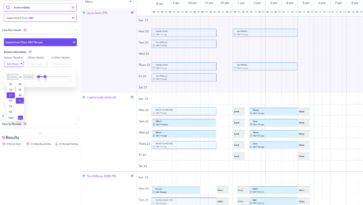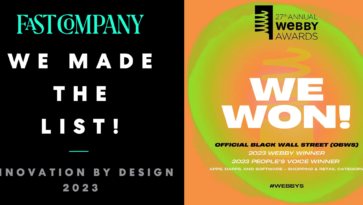In the United States, an estimated 18.7% of Americans live with at least one disability. Over 21 million people experience some form of upper extremity disability. Universal design is becoming more commonplace (think digital curb cuts and closed captions) because companies are becoming increasingly aware of the positive business case for accessible design. The best product experiences come by incorporating accessibility and inclusivity. To maximize success, organizations must design their products and services to be more accessible to the greatest number of users, both with and without disabilities.
As an organization certified by the International Association of Accessibility Professionals (IAAP), Sidebench champions the value of accessible design, and we strive to implement Universal Design principles throughout our work. We’re lucky to have aligned ourselves with our long-term partner, the WITH Foundation, whose mission is to promote comprehensive healthcare for adults with developmental disabilities in the United States.

On June 22, 2020 Sidebench and WITH Foundation teamed up to produce our fourth annual Universal Design Symposium. Due to the COVID-19 pandemic, this marked the first year our event went completely virtual on the Zoom platform. Previously hosted at SXSW, the 2020 virtual event included workshops, panel discussions, and interactive exercises geared to educate participants on the value and necessity of Universal Design practices.
Missed the 2020 Symposium? You can check out the full recording in the links below:
The Symposium
Featuring industry thought leaders from organizations like Adobe, OCAD University, and Flexability, our workshop dove into fundamental topics like Assistive Technology, Lean Accessibility, and Web Accessibility Principles. Participants learned about content covered on the Certified Professional in Accessibility Core Competencies (CPACC) exam from Sidebench’s very own CPACC designer, Cassy Gibson.
To increase the accessibility of our workshop, we hired a Communication Access Realtime Translation (CART) provider to stream captions in real-time through StreamText. Zoom webinar features maximized the security of participants, allowing Sidebench to moderate attendees’ audio and video streams. These best practices allowed us to spotlight the Universal Design principles shared in our presentation.

Jutta Treviranus, Director of the Inclusive Design Research Centre (IDRC) and professor at OCAD University in Toronto, kicked off delivering a powerful opening keynote that provided a context for and addressed the harmful impacts of common myths found in UX design.
Attendees were then invited to engage with our Q&A business panel featuring Crosby Cromwell, Tiffany Yu, and Frances West, who shared their insights on digital inclusion, lived experiences of disability, and equity in the workplace.
Following the panel, our speaker Elle Waters, Accessibility Product Manager at Adobe, led a presentation on Lean Accessibility and the importance of building inclusive design in agile workflows.
Educational workshops can be key to creating a well-informed community of changemakers who promote the values of inclusive design. Our Symposium had a significant impact on our attendees’ perspectives. In a post-event evaluation, 50% of surveyed participants indicated the Symposium had a large impact on their understanding of designing for users with disabilities. 100% of respondents believed incorporating Universal Design yields increased economic return for businesses.
Previous iterations of our Symposium have included an entire Beta Day, where designers and developers received direct feedback from prototype testers with disabilities. You can learn more about our last Beta Day here.
Comments
Universal Design benefits all users with (and without) disabilities. Organizations across industry sectors can significantly increase the reach and impact of their products and services by designing with accessibility in mind. Sidebench is proud to work with WITH Foundation in spreading the value of Universal Design, and we hope event participants can take their newfound knowledge, and emerging peer network to champion inclusive design to the larger technology community to encourage wide-spead adoption.







